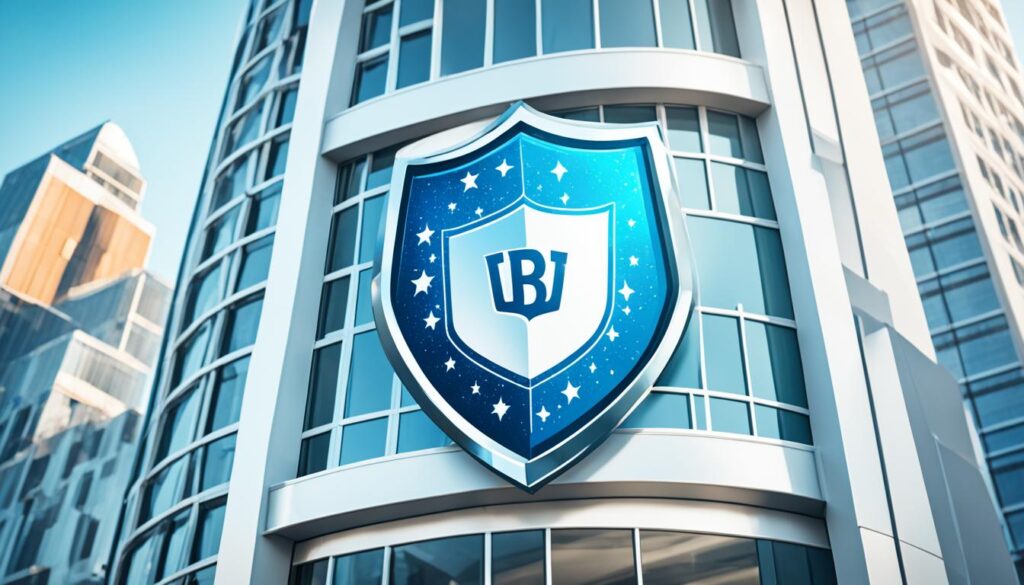Launching a cleaning business involves more than just grit and cleaning supplies; it requires navigating the legal intricacies of cleaning business license requirements. Understanding what licenses are needed to start a cleaning business is paramount to setting a professional tone and establishing trust with your clients. Whether it’s for starting a cleaning service licenses, legal permits for cleaning business, or obtaining business permits for cleaning services, compliance with the law is non-negotiable.
Cleaning business registration is a foundational step in your entrepreneurial journey, laying the groundwork for legality and legitimacy. Grappling with the cleaning company licensing process can seem daunting, but by acquiring the correct cleaning business legal documents, you position your enterprise for success. Make no mistake; adhering to professional cleaning license requirements is a critical aspect of your business plan.
Key Takeaways
- Grasping the full scope of necessary licenses is a step toward professionalism in the cleaning industry.
- Legal compliance ensures your cleaning business is trustworthy and reputable.
- Each locale may require different permits and licenses – tailored research is key.
- Registration and proper documentation provide a legal safety net for both owner and clientele.
- Maintaining licenses and understanding renewal procedures are integral for uninterrupted business.
- Legal permits may extend beyond basic licensing, depending on the services offered.
The Legal Foundations of a Cleaning Business Start-Up
Embarking on a cleaning business calls for meticulous attention to the legal frameworks that underpin its operations. The groundwork of understanding business licensing, complying with legal permits, protecting your business with insurance and bonds, and recognising the legal foundations of a cleaning business start-up is not just a formality—it’s a strategic imperative that safeguards your entrepreneurial journey.
Understanding Business Licensing
At the heart of any cleaning business lies the necessity for proper licensing. Business licensing functions as an official seal of approval from governing bodies, asserting that your establishment meets the designated standards for operations within your jurisdiction. Licensing acts as a bedrock, ensuring compliance across health, safety, and professional regulations and shaping the integrity and trustworthiness of your service in the marketplace.
The Importance of Complying with Legal Permits
Legal permits are indispensable in affirming your cleaning business’s legitimacy. Complying with the required permits demonstrates adherence to local, state, and federal regulations, effectively steering clear of potential legal penalties. Each permit carries its unique stipulations, tailored around the specifics of environmental considerations, waste disposal, and the handling of cleaning chemicals—crucial cogs within the operational wheel of the cleaning industry.
Protecting Your Business with Insurance and Bonds
Insurances and bonds constitute a protective layer for your cleaning business, buffering against unforeseen adversities and financial liabilities. Insurance policies like general liability and workers’ compensation stand as testaments to responsible entrepreneurship, offering an assurance of indemnity for both workforce and client base. Bonds further cement this security, promising compensation for any contractual non-compliances, fortifying client confidence, and fostering a stable business environment.
What Licenses Are Needed to Start a Cleaning Business
Embarking on a journey to establish a cleaning business means not only are you preparing to offer a valuable service, but you’re also committing to adhere to specific regulations that govern the industry. Knowing what licenses are needed to start a cleaning business is the first step toward ensuring compliance and safeguarding your enterprise’s future.
When identifying the essential licenses for a cleaning business start-up, it’s imperative to understand that requirements can considerably vary by state, county, and city. Nonetheless, there is a common set of permits that most cleaning businesses will need to secure before offering services legally.
- A Business License: This license affirms your legal right to operate your cleaning service within your locality.
- An Employer Identification Number (EIN): Necessary if your cleaning business has employees; this number is used for tax purposes.
- Sales Tax License: If you’re planning on selling cleaning products or additional services, this license permits the collection of sales tax from customers.
- Occupational License: Some jurisdictions require cleaning businesses to have an occupational license, which is often based on the estimated gross income.
It is also important for those starting a cleaning service to understand that licenses may need to be renewed on a regular, often annual, basis. Neglecting to renew licenses may lead to fines or the suspension of your business operation.
Starting a cleaning service licenses can feel daunting, but by methodically gathering the necessary documentation, aspiring entrepreneurs can turn their focus towards growth and client satisfaction.
In addition to the aforementioned permits, ensure that you verify whether your area mandates a Home Occupation Permit if you’re running your business from home, or a Contractors’ License if your services extend to the realms of restoration or specialized cleaning.
To acquire these starting a cleaning service licenses, reach out to your local city hall or county clerk’s office for guidance. Detailed resources are often available, offering checklists and step-by-step instructions to facilitate your application process.
An Overview of Cleaning Business License Requirements
For entrepreneurs eager to establish a foothold in the housekeeping industry, a comprehensive grasp of cleaning business license requirements is not just beneficial—it’s a necessity. These permits not only enable lawful operation but also instill client confidence and provide a foundation for business credibility.
Two key types of licenses typically emerge as pivotal: the vendor license, essential for collecting sales tax legally when selling products or separate cleaning supplies, and the DBA license, which is mandatory for those operating under an assumed business name. Let’s explore the particulars of each license to ensure your business complies with state and local regulations.
Vendor License: Collecting Sales Tax Legally
A vendor license serves as permission for your cleaning business to charge and submit state sales tax. If you’re contemplating whether this license applies to your services, consider if you are separately billing for cleaning products. In such cases, adhering to tax collection laws is fundamental for legitimacy and financial transparency.
DBA License: Operating Under an Assumed Business Name
Opting for a DBA, or “Doing Business As,” license is a strategic choice if your cleaning service presents itself under a name different from your legal entity. Securing this license affirms your rights to the name and assures that clients recognize the brand they are entrusting their premises to.
| License Type | Purpose | When is it Required? | Primary Benefit |
|---|---|---|---|
| Vendor License | To legally collect and remit sales tax on products | Selling cleaning supplies separately from services | Ensures tax compliance and financial legitimacy |
| DBA License | To legally operate under a business name different from the owner’s | Using an assumed name for marketing and operations | Protects and legitimizes brand identity |
Understanding and securing these licenses are foundational steps in establishing a legitimate and trustworthy cleaning business. Ensure that your cleaning service meets all local and state cleaning business license requirements to prevent any legal issues and to foster a bond of trust with your clientele.
Navigating the Cleaning Company Licensing Process
The journey to formalize a cleaning business through the appropriate channels can feel daunting at first. Aspiring business owners must familiarize themselves with the cleaning company licensing process which involves several key steps. To begin with, it’s essential to engage with state and local agencies that oversee license acquisition specific to the cleaning industry. This essential partnership ensures that all regulatory standards and local ordinances are met by the business.
Engaging with State and Local Agencies for License Acquisition
Engaging with state and local agencies is the foundational step toward acquiring a cleaning business license. This relationship helps to streamline the process of understanding local regulations and avoiding any unnecessary complications. From zoning laws to health department clearances, each state and municipality can have its unique set of requirements, and establishing a good rapport with these agencies can significantly assist in navigating this multifaceted process.
Understanding Renewal and Fees for Cleaning Business Registration
Beyond the initial license acquisition, maintaining an active cleaning business license involves understanding renewal and fees for cleaning business registration. Cleanliness being an ongoing necessity in society, cleaning services are perennially in demand, and hence, keeping the business legally compliant is non-negotiable. Licenses typically have an expiration date, and business owners must be vigilant about renewal deadlines to avoid penalties or interruptions in their service offerings.
In most jurisdictions, the cleaning company licensing process also includes an array of fees which may include application fees, renewal fees, and possibly other business-specific charges. A clear understanding of these fees is important for financial planning and ensuring that your cleaning business is financially solvent from the outset.
| License Type | Application Fees | Renewal Fees | Frequency of Renewal |
|---|---|---|---|
| General Business License | $50 – $100 | $25 – $50 | Annually |
| Cleaning Services License | $75 – $150 | $50 – $100 | Every 2 Years |
| Vendor License for Sales Tax | $20 – $50 | $10 – $25 | Annually |
By knowing the particulars of this process, including fees and renewal terms, businesses ensure continuity, demonstrate professionalism to clients and establish their reputation as a licensed and trustworthy cleaning service provider.
Legal Permits for Cleaning Business: Beyond Basic Licensing
Expanding on the necessity of standard licensing, a cleaning business must also consider the realm of additional legal permits that solidify the safety and credibility of its operations. Among these, license and permit bonds stand out as pivotal components in the infrastructure of a compliant and customer-conscious enterprise.
License and Permit Bonds: A Closer Look
License and permit bonds are an assurance to government entities that a cleaning business adheres to regulations and ordinances. These surety bonds function as a safeguard, ensuring legal and ethical conduct. Moreover, these bonds often serve as a prerequisite to obtaining a business license, proving that the cleaning entity is worth trusting for potential clients and the broader community.
Surety and Janitorial Bonds: Client Protection Measures
Surety bonds, synonymous with trust, operate as a financial guarantee between three parties: the obligee (client), the principal (cleaning business), and the surety (bond issuer). They are promise-based securities that offer compensation in the event of non-compliance or breach of contract. Janitorial bonds, a subset of surety bonds, specifically address the client’s property protection, guaranteeing reimbursement for any property loss due to employee theft or misconduct.
| Type of Bond | Purpose | Beneficiary |
|---|---|---|
| License and Permit Bond | Ensures adherence to local regulations and ordinances. | Local Government |
| Surety Bond | Acts as financial insurance for contractual obligations. | Client (Obligee) |
| Janitorial Bond | Protects clients against property loss due to employee actions. | Client (Obligee) |
By incorporating license and permit bonds, surety bonds, and janitorial bonds into their business framework, cleaning service providers elevate their standards, ensuring compliance and client protection measures are in place. This level of meticulousness not only fortifies the relationship with clients but also underscores the company’s commitment to superior service and integrity.
The Role of Bonds in the Cleaning Service Licenses Framework
The importance of bonds for a cleaning business cannot be overstated. Serving as a crucial component in the industry’s regulatory regime, bonds function as a safeguard, offering financial protection to clients while simultaneously fostering a responsible business landscape. Transparent and ethical practices are promoted by the bonds as a legal requirement, ensuring that businesses adhere to industry standards and deliver on their service promises.

Within the role of bonds in the cleaning service licenses framework, these financial instruments act as a trust-building tool between service providers and clients. They are not just formalities; bonds are tangible representations of a company’s commitment to professionalism and reliability. In the event of non-compliance or damages, these bonds provide a means of recourse, solidifying the relationship of trust by prioritizing client interests.
The bond is essentially a tripartite agreement – between the cleaning business, the agency requiring the bond, and the entity guaranteeing the bond (usually a surety company) – designed to enforce the cleaning company’s adherence to the law and contractual agreements.
As a further enhancement to understanding, let’s examine a comparative table which delineates common types of bonds required by cleaning businesses:
| Type of Bond | Purpose | Beneficiary |
|---|---|---|
| License and Permit Bond | Guarantee legal compliance with local and state regulations | State or local government |
| Janitorial Service Bond | Insure against theft or damage by employees | Clients |
| Performance Bond | Ensure fulfillment of contractual duties | Clients |
| Bid Bond | Secure the bidding process for large contracts | Entity offering the contract |
Understanding the diversity and role of bonds in the cleaning service licenses framework is indispensable for any cleaning business owner. Not only are they a protective mechanism, but bonds also lend themselves as a badge of assurance for customers seeking high-quality and reliable cleaning services. The importance of bonds for a cleaning business is further enforced by the need for maintaining industry credibility and adhering to the bonds as a legal requirement in various jurisdictions.
Types of Insurance Policies Your Cleaning Business Requires
Ensuring your cleaning business is equipped with the right types of insurance policies is not just prudent—it’s essential for safeguarding against potential liabilities and financial losses. From handling general accidents on the job to covering auto incidents during business operations, the correct combination of insurance can be the fortification your business needs. It’s crucial to stay informed about the various policies available and determine which ones are paramount for the nature of your services.
General Liability Insurance: Essential Coverage for Common Risks
General liability insurance is the cornerstone policy that offers protection against a host of common business risks. This type of insurance for a cleaning business covers claims of bodily injury or property damage caused by your business activities. For example, if a client’s property is damaged while cleaning, this policy can cover the costs. Ensuring you have robust general liability insurance can shield your company from unexpected expenses and legal complications.
Workers’ Compensation and Employer’s Liability Insurance
Workers’ compensation insurance is vital for any cleaning business that hires employees. It covers medical costs and lost wages if an employee gets injured on the job. Moreover, employer’s liability insurance can protect your business from lawsuits related to employee injuries. This dual-layered approach helps maintain your business’s financial stability and supports your team in the event of workplace accidents.
Commercial and Hired Auto Insurance: Coverage for Business Vehicles
If your cleaning business owns vehicles, commercial auto insurance is non-negotiable. It provides coverage for damages from collisions or other vehicular accidents. Conversely, if you rent or hire vehicles, hired auto insurance offers similar protections for those temporary arrangements. Integrating both types of insurance ensures that all bases are covered, whether your employees are driving owned or leased vehicles.
- General liability insurance – a must-have for basic protection against business operations risks.
- Workers’ compensation insurance – vital for employee health and safety on the job.
- Employer’s liability insurance – additional coverage that handles potential lawsuits from work-related injuries.
- Commercial auto insurance – secures company vehicles in case of accidents and damages.
- Hired auto insurance – ensures leased or rented vehicles are also properly insured.
Choosing the appropriate types of insurance policies for a cleaning business doesn’t just show due diligence; it portrays your business as a responsible entity that values staff welfare and client satisfaction. Review each policy and consult with an insurance agent to tailor your coverage to fit your specific business needs. With the right insurance in place, you’ll have the confidence to focus on growing your business while mitigating risks effectively.
Starting a Cleaning Service Licenses: The Operational Checklist
Kicking off a cleaning business involves more than just the hands-on work; it’s about laying a solid legal foundation that dictates the scale and scope of your services. Embarking on this journey requires not just determination, but also keen attention to legal details and a meticulous approach to setting up the operation. An exhaustive operational checklist can be the roadmap for navigating through the complexities of starting a cleaning service licenses and establishing a name that resonates with cleanliness and trust in the industry.
Selecting Business Structure and Naming Your Operation
Starting a cleaning business begins with making foundational decisions that will influence how you operate and how you are perceived by both customers and the government. Selecting a business structure – whether it’s a sole proprietorship, partnership, limited liability company (LLC), or corporation – will have tax, liability, and record-keeping implications. Additionally, naming your operation isn’t just a creative exercise; it involves ensuring the name is unique, reflects your brand, and adheres to any local naming laws. Bearing in mind the operational checklist for a cleaning business, here’s an outlined path for formalizing your establishment:
- Research the types of business structures and evaluate which suits your needs best.
- Determine a unique and memorable name that stands out and reflects your values.
- Conduct a name search to ensure it’s not already in use or trademarked.
- Register your business name following local guidelines.
- Consult with a legal advisor to finalize the business structure and its implications.
Meeting Government Regulations and Standards for Operation
The legal facet of starting a cleaning service is multifaceted – from adhering to employment laws to meeting health and safety standards. Each step is governed by regulations that are pivotal to your business longevity and its capacity to deliver services reliably and legally. Meeting government regulations is not just about compliance but about securing trust and establishing a reputation in the market. Here’s a snapshot of the vital regulations to keep your cleaning service in good standing:
| Regulation Type | Description | Action Required |
|---|---|---|
| Business Licensing | Acquiring the proper license to legally operate a cleaning service. | Apply for and maintain starting a cleaning service licenses. |
| Health & Safety | Ensuring your services comply with OSHA and other health guidelines. | Develop and adhere to a safety protocol; provide training to staff. |
| Employment Laws | Following fair labor practices, including wages, hours, and benefits. | Understand and adhere to state and federal employment regulations. |
| Environmental Standards | Complying with regulations for the use and disposal of cleaning chemicals. | Train on proper handling of chemicals and obtaining necessary permits. |
| Insurance Coverage | Protecting your assets, employees, and clients against accidents or damages. | Secure general liability, workers’ compensation, and other relevant insurance policies. |
By diligently following this operational checklist for a cleaning business, not only do you fortify your enterprise against common pitfalls, but you also lay a runway for your brand to soar to new heights. Each item ticked off this list is a step closer to operational excellence, customer trust, and business success.
Marketing Your Licensed and Bonded Cleaning Business
With your cleaning business fully licensed and bonded, the spotlight now shifts to how you can channel this credence into effective marketing strategies. The task at hand is not merely promoting your cleaning business but doing so in a way that resonates with the core values customers seek: trustworthiness, reliability, and professionalism. Traditional advertising mediums, such as flyers and local newspapers, provide tangible touchpoints for community engagement. However, the digital space offers expansive outreach potentials. Focus on marketing your licensed and bonded cleaning business through social media platforms and your company website, where authenticity and transparency cultivate a loyal customer base.
It is essential to construct a narrative around the security your bonds and licenses afford your clients, effectively attracting clients for a licensed and bonded cleaning service. Honest testimonials and before-after visuals can be potent tools in illustrating your business’s impact, thus giving prospective customers tangible proof of your service quality and reliability. Pivoting on your licensed status in promotional materials reassures clients that they are partnering with a vetted service provider, safeguarding their interests and properties. Optimization of local SEO strategies can also enhance visibility in your operating area, ensuring that your business appears prominently when potential clients search for cleaning services.
Remeber, the integrity of your business is your unique selling proposition. Illustrate this clearly in your marketing campaigns to navigate the competitive landscape successfully. Keep refining your approach by staying attuned to customer feedback and evolving market trends. Undeniably, the ability to adeptly convey the benefits of choosing a licensed and bonded service provider will set the course for sustained growth and an expanding client roster in your cleaning business endeavor.
FAQ
What licenses are needed to start a cleaning business?
The licenses needed to start a cleaning business may vary depending on your location and the services you offer. However, two common licenses are the vendor license, required for collecting sales tax legally if you charge clients for cleaning supplies separately, and the DBA license, required if your cleaning business operates under an assumed business name.
What are the legal foundations of a cleaning business start-up?
The legal foundations of a cleaning business start-up include business licensing, which is necessary for legal compliance, and permits, which must be obtained to operate within the regulations set by government agencies. Protecting your business with insurance and bonds is also essential for financial security and client protection.
What are the licensing requirements for a cleaning business?
The licensing requirements for a cleaning business may vary depending on your location and the services you offer. However, two common licenses are the vendor license, required for collecting sales tax, and the DBA license, required if your cleaning business operates under a different name.
How can I navigate the cleaning company licensing process?
To navigate the cleaning company licensing process, you need to engage with state and local agencies to acquire the necessary licenses. Understanding the renewal process and fees associated with cleaning business registration is also crucial for maintaining compliance.
What legal permits are required for a cleaning business?
In addition to basic licensing requirements, certain legal permits may be necessary for a cleaning business, depending on the services you offer. License and permit bonds, such as surety bonds and janitorial bonds, are important for client protection in case of damages or fraudulent actions.
What is the role of bonds in the cleaning service licenses framework?
Bonds play a crucial role in the cleaning service licenses framework by providing financial protection for clients and ensuring ethical business practices. They are a legal requirement that contributes to building trust with clients.
What types of insurance policies does a cleaning business require?
A cleaning business typically requires several types of insurance policies, including general liability insurance to cover common risks, workers’ compensation insurance to protect employees, employer’s liability insurance, and commercial and hired auto insurance to cover business vehicles.
What should be included in the operational checklist for starting a cleaning business?
The operational checklist for starting a cleaning business should include selecting the appropriate business structure, choosing a name for your operation, and ensuring compliance with government regulations and industry standards.
How can I effectively market my licensed and bonded cleaning business?
To effectively market your licensed and bonded cleaning business, you can utilize various strategies and techniques, such as online marketing and traditional advertising methods. The focus should be on showcasing your professionalism, reliability, and commitment to quality service to attract potential clients.







